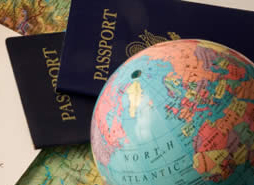
Melbourne, July 26: Australia has issued a travel advisory asking its citizens to reconsider their travel plans to India's north eastern states of Assam, Manipur, Nagaland and Tripura.
Issuing a new advisory yesterday, Department of Foreign Affairs and Trade (DFAT) said, "We advise you to reconsider your need to travel to the north-eastern states of Assam, Nagaland, Tripura and Manipur because of the risk of armed robbery, kidnapping, extortion and terrorism-related incidents."
"If you do decide to travel to these areas, you should exercise extreme caution.
"Insurgent groups have attacked civilians and bombed buildings. There is also a risk from insurgent groups in rural areas of these states," it said.
"In July 2012, inter-communal violence in the Kokrajhar, Chirang and Dhubri districts of Assam reportedly caused a number of deaths and injuries. There are reports of displacement and disruption to transport services. Various districts have put curfews in place. Further violence may occur," it said.
However, it said that the overall level of the advice for the citizens was not changed for other parts of the country.
On travelling to other parts of India, it said, "we advise you to exercise a high degree of caution in India at this time because of the high risk of terrorist activity by militant groups, pay close attention to your personal security at all times and monitor the media for information about possible new safety or security risks."
"Terrorist attacks could occur anywhere at any time in India with little or no warning. Possible targets include public places in New Delhi, Mumbai and other major cities, areas frequented by tourists (such as hotels, markets, tourist sites and transport hubs), Indian security and political interests and other locations identified under Safety and Security: Terrorism."
"Major secular and religious holidays could provide terrorist groups an opportunity or pretext to stage an attack," it said.
For Jammu and Kashmir, the advisory remained unchanged with DFAT asking not to travel to the state other than to the Ladakh region via Manali, or by air to the city of Leh, due to frequent armed clashes and terrorist activities.




Comments
Add new comment